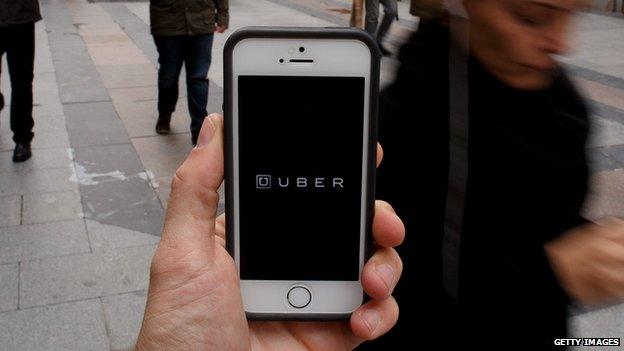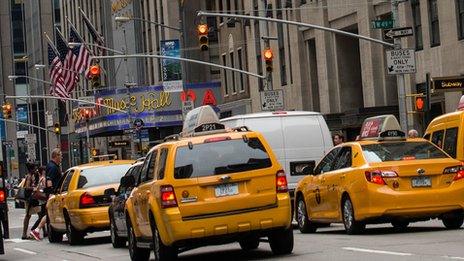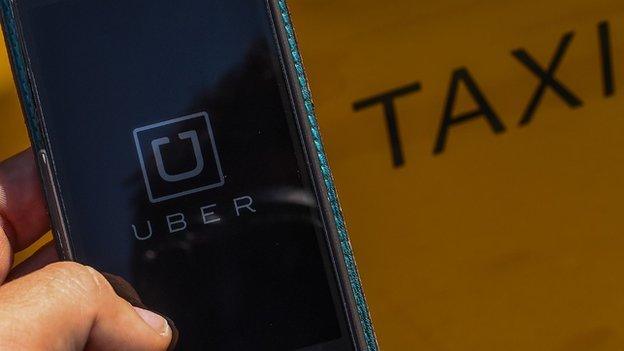Uber office in Guangzhou 'raided'
- Published

Private transport firm Uber has faced legal difficulties in many countries across the world
Private online car-hire service Uber has had its offices in the southern Chinese city of Guangzhou raided by authorities, reports say.
According to local media, the US company is under investigation for "organising private drivers to provide unlicensed businesses".
The local transport, police and industry bodies are said to have seized equipment including mobile phones.
Guangzhou considers car-hire services that involve private drivers illegal.
"Law enforcement departments have come down hard on such illegal businesses as they disrupt the market and we will not be soft on these activities in the future," the Guangzhou Transport Commission said in a recent statement.
Uber first launched in China last year and its service is now available in the capital, Beijing, as well as the cities of Hangzhou, Guangzhou and Shenzhen.
According to reports, Uber's offices in the southern Chinese city of Shenzhen were also visited by authorities this week for a "routine inspection".
In a statement, Uber said it "prides itself on providing efficient and convenient transportation options for riders to get from point to point, helping cities reduce congestion pollution.
"We have maintained open channels of communications and are working closely with local authorities in co-operation."

Analysis: John Sudworth, BBC Shanghai correspondent
China's transport authorities, like those in many other countries, have been struggling to cope with the impact of mobile phone based taxi hailing apps, in particular the huge popularity of the so called ride-sharing service provided by unlicensed, private drivers.
Popular, it seems, because they offer cleaner, more modern cars and, often, a higher level of customer service compared to traditional taxis.
In recent months, some of these drivers, in a number of Chinese cities, have been stopped and fined up to $5,000.
Uber's market share is dwarfed by that of the larger home-grown taxi app companies, Didi Dache and Kuaidi Dache, which recently merged. If the Guangzhou raid is a sign that the government is preparing to get tougher, then some observers will wonder if the smaller, foreign-owned target has been chosen for reasons of political convenience.

Growth problems
Uber has been expanding aggressively in recent years, but has run into problems in a number of countries, including South Korea and India.
The San Francisco-based firm has seen its service banned in both Asian nations - as well as Germany and Sao Paulo in Brazil - because of safety concerns and industry opposition.
In India, for example, Uber came under fire and was banned after a driver in Delhi allegedly raped a female passenger.
The fast-growing start up, which was founding in 2009, is estimated to be worth $40bn following its most recent fundraising round.
Uber operates in more than 250 cities in 57 countries, according to its website., external
- Published20 March 2015

- Published19 March 2015

- Published18 January 2015
